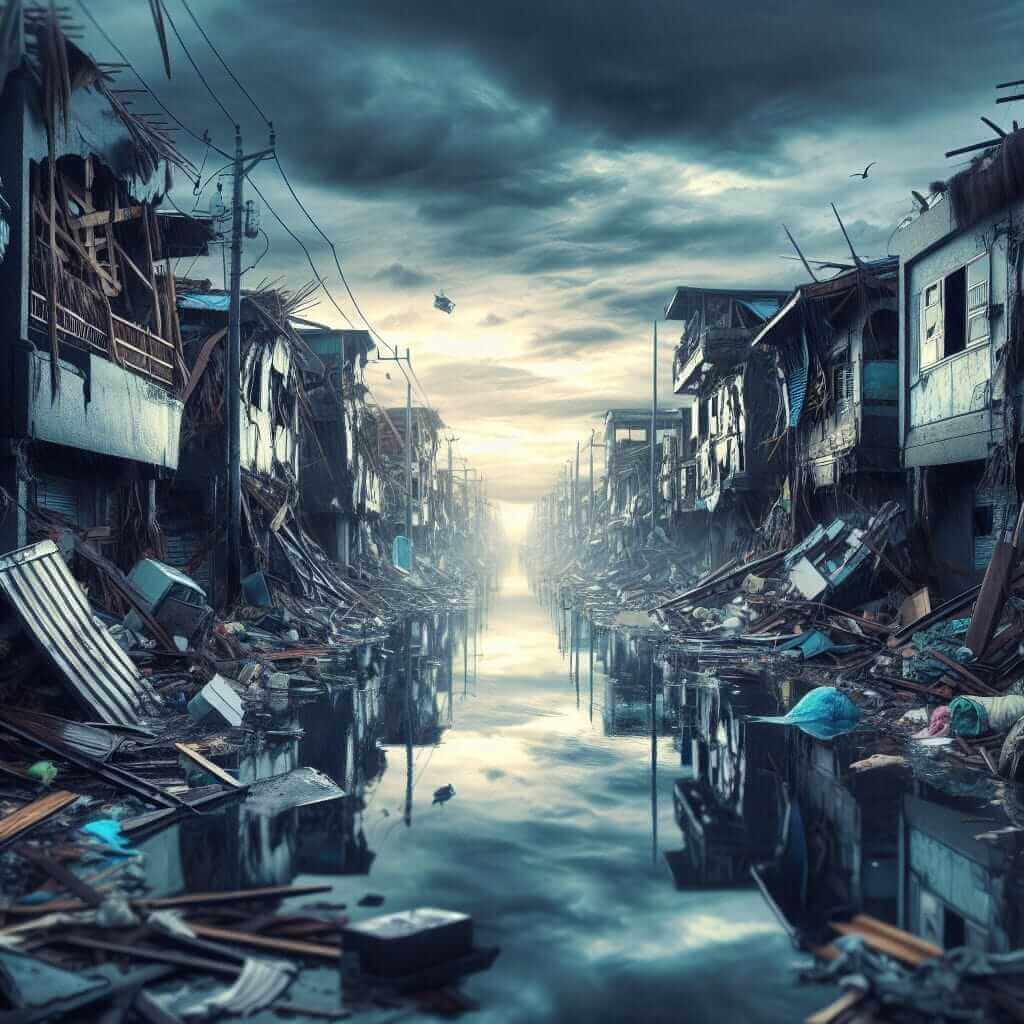The IELTS Speaking test assesses various factors including fluency, coherence, lexical resource, grammatical range, and pronunciation. Questions about personal experiences are common, and one plausible topic is “Describe a time when you were affected by a natural disaster.” This is a frequent query as it tests your ability to narrate personal incidents while employing descriptive and emotionally evocative language.
Content
Part 1: Introduction and Interview
In Part 1, the examiner may ask general questions about your life. Here are some examples:
- Have you ever experienced a natural disaster?
- What do people in your country do to prepare for natural disasters?
Sample Answer for Part 1
Question: Have you ever experienced a natural disaster?
Answer: Yes, I have. Unfortunately, I went through a harrowing experience with a typhoon when I was living in the Philippines. The storm not only caused widespread destruction but also resulted in power outages and a shortage of essential supplies.
Part 2: Long Turn
Cue Card
Describe a time when you were affected by a natural disaster
- What natural disaster it was
- Where you were when it happened
- How it affected you
- How you felt about it
Sample Answer for Part 2
One vivid memory I have involves experiencing Typhoon Haiyan in 2013. At that time, I was residing in Tacloban City, which was directly in the path of the storm. The immense force of the typhoon caused extensive damage to infrastructure, including homes, schools, and hospitals. My own house was severely damaged; the roof was blown away, and we lost many personal belongings.
Initially, the howling wind and the torrential rain were terrifying. We had to evacuate to a local shelter for safety. During the aftermath, it was incredibly challenging to cope with the lack of electricity, clean water, and food. However, the community’s resilience and the support from various international organizations eventually helped us return to normalcy.

This experience profoundly affected me, not just physically, but emotionally and mentally as well. I felt an immense wave of gratitude for surviving such a perilous event but also a sense of loss for the things and the people that were gone.
Follow-up Questions for Part 2
- How did your community respond to the typhoon?
- What measures were taken to prevent future disasters?
Part 3: Two-way Discussion
In this part, examiners usually ask more abstract questions related to the topic in Part 2.
Sample Questions and Answers for Part 3
Examiner: How do natural disasters impact a country’s economy?
Candidate: Natural disasters can have devastating effects on a country’s economy. Infrastructure damage, such as the destruction of roads, bridges, and buildings, results in substantial repair costs. Agriculture can also be severely affected, leading to food shortages and increased prices. Furthermore, businesses may face bankruptcy, and unemployment rates might surge, causing a long-term economic downturn.
Examiner: Do you think climate change influences the frequency and severity of natural disasters?
Candidate: Absolutely. Scientific studies suggest that climate change has escalated the frequency and intensity of natural disasters. Global warming leads to more extreme weather conditions like stronger storms, severe droughts, and intense heatwaves. Therefore, addressing climate change is critical for mitigating the future impact of these natural calamitous events.
Vocabulary and Structures
Here are some high-level vocabulary and structures that can help enhance your score:
Vocabulary
- Typhoon Haiyan (noun) – The name of the specific typhoon.
- Harrowing (adjective) – Extremely distressing or painful.
- Resilience (noun) – The capacity to recover quickly from difficulties.
- Torrential rain (noun) – Very heavy rainfall.
- Perilous (adjective) – Full of danger or risk.
Structures
- Complex sentences: “Although it was a harrowing experience, it taught me the value of preparedness.”
- Passive voice: “My house was severely damaged by the typhoon.”
- Conditional sentences: “If it hadn’t been for the international support, recovery would have taken much longer.”
Examples
- “Experiencing Typhoon Haiyan was an incredibly harrowing ordeal.”
- “The torrential rain and howling wind were terrifying.”
- “The community’s resilience was commendable.”
Recommendations
Tips for Preparation
- Practice Speaking: Work on fluently expressing your thoughts on various topics.
- Expand Vocabulary: Learn and practice using high-level vocabulary and complex grammar structures.
- Mock Tests: Take practice tests to get comfortable with the format and timing.
Final Thoughts
To excel in the IELTS Speaking test, it’s crucial to be well-prepared, confident, and articulate. By recounting vivid personal incidents and employing rich vocabulary and varied sentence structures, you can achieve a high band score.